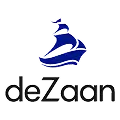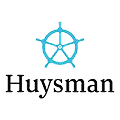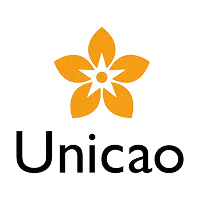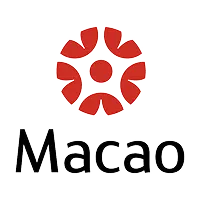California Supply Chain Transparency Act Disclosure
January 2023
This disclosure is made on behalf of olam food ingredients and our applicable affiliates (collectively, “ofi,” “we,” “us,” “our”). ofi (“olam food ingredients”), a global leader in naturally good food & beverage ingredients, is a new operating group within the Olam Group (“Olam”). ofi was created in early 2020 following the announcement of the re-organization within Olam International Limited (“Olam”) to unlock and maximize its long-term value. ofi is a leading food ingredients and solutions company focused on five specific product platforms (cocoa, coffee, dairy, nuts, and spices).
Doing business in an ethical, socially responsible, and environmentally sustainable manner is embedded in every aspect of our business. ofi is committed to providing a workplace where all employees are treated with dignity and fairness, and to respecting the rights of people and communities where we operate. We have zero tolerance for slavery, forced labor or human trafficking in our organization and our supply chains.
This disclosure sets out examples of verification, audit, certification, internal accountability, and training we deploy as we engage with suppliers, customers, civil society, governments, and communities to prevent and remediate human rights violations across our value chains, and in the markets, where we operate and have influence.
Sustainability is integral to our Purpose
Respecting labor and human rights is an intrinsic part of ofi’s purpose to ‘Be the Change for Good Food and a Healthy Future”. Across our business and our supply chains, we are committed to providing a workplace where all employees are treated with dignity and fairness, and to respecting the rights of people and communities. Visit our ethics and compliance page for our position on human and labor rights.
Verification and Training
We are aware of the risk of forced and slave labor given the global presence of our group companies worldwide and diverse and fragmented agricultural supply chains. We have robust human rights due diligence policies and processes in place, co-created with and implemented by our local subsidiaries on the ground, which include:
Assessing risks in our own operations and our direct supply chain, in partnership with Wageningen University, through consultations with key stakeholders and engagement with our suppliers.
Partnering with Wageningen University and others to develop an HR risk assessment methodology.
Providing training to teams who are more likely to come across potential labor and human rights issues and raising awareness for all our employees.
Prioritizing key risk areas so that steps can be taken to monitor those areas more closely and provide remediation if necessary.
To advance our commitments, we have embedded human rights within our Policies including our Fair Employment Policy and our Code of Conduct which are in line with the Conventions of the International Labour Organization (ILO) and the United Nations Guiding Principles on Business and Human Rights. We are also a signatory to the UN Global Compact. In 2019, Olam published a revised version of its Code of Conduct, which is the cornerstone of Olam and ofi’s commitment to integrity, setting out our commitment to “do what is right”, founded on the values and everyday behaviors that build our distinctive culture and setting the standard that is embedded in every aspect of our business. This includes our commitments to people, labor and human rights within our own workplaces and in the communities and supply chains where ofi companies operate.
Additionally, ofi’s AtSource sustainability insights platform was developed internally and specifically for Olam (now ofi) and offers enhanced ability to track the environmental and social footprint of our ingredients from the farmer to the factory gate. It includes social and environmental metrics aligned with the Global Reporting Initiative and the UN Sustainable Development Goals, including labor related metrics covering safe and decent work, as well as diversity and inclusion.
With suppliers, customers and other partners, we undertake multiple measures to reduce the risk of social and environmental issues including by providing training, often in collaboration with industry, charitable and government partners, on human, children, and gender rights as well as supporting farmers to earn more through better quality yields and diversified income, and so be able to afford adult labor. We participate in sector initiatives such as Cocoa & Forests Initiative (CFI), the International Cocoa Initiative Global Child Forum, ILO Child Labor Platform, as well as the Sustainable Spices Initiative Child Labor and the Living Income Working Group.
Throughout the organization, we are rolling out human rights training for our management team, and implementing robust due diligence systems to understand, prevent and remediate labor issues in our direct supply chains. For example, sustainability teams in cocoa-sourcing countries had training from the Fair Labor Association on preventing and remediating forced labor, and we plan to do similar training for the farmer suppliers we work with to help them better mitigate forced labor risks. We have also rolled out our child labor monitoring and remediation systems app in all managed sustainability programs across our nine cocoa origins, which covered over 218,000 households in 2021.
Our Policies
Name of Policy | Date published/revised |
March 2019 | |
April 2018 | |
May 2022 | |
April 2018 | |
January 2022 | |
July 2015 |
Certification and Audit
We recognize the importance of working with our direct suppliers to develop supply chains that respect people and human rights. Our Supplier Code sets out our expectationsfor sourcing raw materials, products and services in an ethical, socially responsible and environmentally sustainable manner and in compliance with all relevant applicable laws and regulations.
Our Supplier Code of Conduct sets out a comprehensive set of conditions to which we expect our direct suppliers to adhere and we contractually require that they impose the same conditions on their suppliers. Those conditions, in relevant part, include:
The expectation that suppliers comply to the International Labor Organization (ILO) Convention 138 on the Minimum Age of Employment and Convention 182 on the Worst Forms of Child Labor;
Being strictly prohibited to use forced, involuntary and slave labor, including bonded, indentured and involuntary prison labor; as well as trafficked human beings;
Creating an inclusive work environment that avoids any form of discrimination. All forms of harassment, including sexual harassment, intimidation, and abuse or threat are not permissible;
Acknowledging employees’ rights to form and join unions or other associations, and to bargain collectively; unless prevented by local applicable laws;
Providing fair wages and benefits that are in accordance with applicable laws, industry standards or related agreements;
Complying with all applicable ILO standards, national legal requirements and industry standards pertaining to working time;
Providing a safe and hygienic work environment and accommodation (when the case may be) in accordance with applicable health and safety laws and international conventions;
Preventing accidents and injury arising out of, associated with, or occurring in the course of work, by minimizing causes of hazards in the work environment;
Encouraging gender equality, equal access and empowerment of women.
Suppliers signing our Supplier Code are subject to announced inspections by ofi or third-party auditors to ensure compliance. Where remediation measures are required, we work with suppliers to develop and implement corrective action plans. Any supplier found to be in breach of these standards and who does not commit to, and implement, remediation measures may be subject to suspension or termination.
Internal Accountability Our Grievance Procedure applies to our own operations and third-party suppliers to enable concerns about breaches of our policies to be raised confidentially. All grievances are logged and investigated with status updates, and actions, reported.
Internally, we strongly encourage our employees to raise concerns to their respective manager, country leadership team, Human Resources or Legal, and we make it clear that they can always escalate concerns without fear of retaliation as detailed in our whistleblowing policy.
If it has been alleged that adverse impacts exist within our supply chain, we endeavor to remediate the impacts where we can and seek to cooperate with other stakeholders in the remediation process where we have no direct control.
We report on our activities and progress in our Annual Report and Global Reporting Initiative Report.





